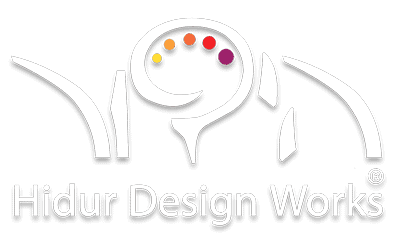the beach boys in bergen-belsen
My songs are like Bic razors. For fun, for modern consumption. You listen to it, like it, discard it, then on to the next. Disposable pop.
—Freddie Mercury (1946–1991)
A few days ago, I have written a blog here talking about the moral problems of abusing the Holocaust for marketing purposes. The reason for this blog was the provocation of the German band Rammstein, who (ab)used the Holocaust and the suffering of Jewish victims in a 35-second teaser to create publicity and click-baiting for the release of their newest single »Deutschland« (Germany), their new album and the upcoming concert tour.
Since last Friday, there was a sea of diverse thoughts and opinions about the matter. And today I would like to pick out one of the arguments that I regard worth reflecting on.
I was surprised when I read more than once, by quite a number of people, that it’s considered a positive move to make the Holocaust a theme in pop and rock music as those would speak the language of our youngsters. It would educate our children, so they say, in a time when the knowledge of history and the Holocaust is dramatically declining. Before sharing my thoughts on this idea, I would like to raise a few questions:
To write poetry after Auschwitz is barbaric.
—Theodor W. Adorno (1903–1969)
• What is the relationship between the arts and their portrayal of the Holocaust?
• Is it possible, or rather, advisable that pop and rock musicians write songs about the Holocaust?
• Has music the capacity or/and responsibility to artistically illuminate the Holocaust at all?
Naturally, the first reflex to this answer would be: Of course! However, if you take a second to reflect upon the question: Are you quite sure?
a survivor from warsaw
Without further research, there was only one piece of music that immediately came to my mind worth mentioning in this context: Arnold Schönberg’s »A Survivor from Warsaw«.
Schönberg, the famous Jewish composer and legendary founder of atonal music in the 20th century, survived the Holocaust by emigrating to the USA in 1933, where he spent the rest of his life.
He wrote the piece in 1947 and it was premiered in November 1948, causing complete confusion and silence among the audience after the final note had vanished. The conductor Kurt Frederick had to repeat the piece a second time immediately afterward, so the audience was able to better cope with this extreme musical and emotional experience, which ended in standing ovations.
Even the famous German philosopher and sociologist Theodor W. Adorno, who completely rejected the principle idea of blurring the Holocaust through any art, had to admit: »Never before has horror sounded so true.«
from schönberg to the beach boys
It is a huge leap from this piece back to the reality of pop culture in 2019, back to the reality of people stating that pop music shall educate our children with songs about the Holocaust. But maybe it stresses the absurdity of such a request a bit more.
I wouldn’t go as far as Adorno to say that the arts should not deal with the Holocaust at all, but I am not so far from it, either. If you carefully examine this field, we primarily find works of survivors themselves, of art and music that was created during the time or by survivors afterward, in the visual arts as well as in music. I am intentionally leaving out the film industry at this point, as I regard it as a more complex and complicated field. There could be much criticism raised about films like »Sophie’s Choice« or »La Vita e Bella«, and even »Schindler’s List« turns a bit too Hollywood at a number of moments, though its educational character and importance today shall not be diminished by that.
But for an artist in the year 2019, any artist, to make the Shoah his/her theme, is a hugely demanding and complicated endeavor, probably more than any other historic tragedy. I only once in my artistic work integrated the Yellow Star in one of my paintings as a reference. The painting itself deals with Israel but I could see how easily people tend to misread it or stop looking carefully as their thinking often stops with a superficial reading of known symbols.
teach the children well
The pop industry is a completely arbitrary business. Anything goes that sells, whether sex or Nazi.
Therefore: the idea of putting this theme into the hands of bands like Rammstein or any other Pop/Rock artists is causing me cold shivers. Do you plan to teach our children about the Holocaust with Fascist Rammstein aesthetics, Madonna or Justin Bieber? Are you kidding me?
Do we want our youngsters to be better educated again about the Holocaust and history in general? So teach them. But teach them well. Raise their spirits and don’t lower them to the lowest levels of popular culture to get their attention. They’ll be grateful for it in a few years, I promise you.
You who have not experienced their anguish, you who do not speak their language, you who do not mourn their dead, think before you offend them, before you betray them …
—Eli Wiesel (1928–2016)
© Yehudis Jacobowitz, Hidur Design Works
